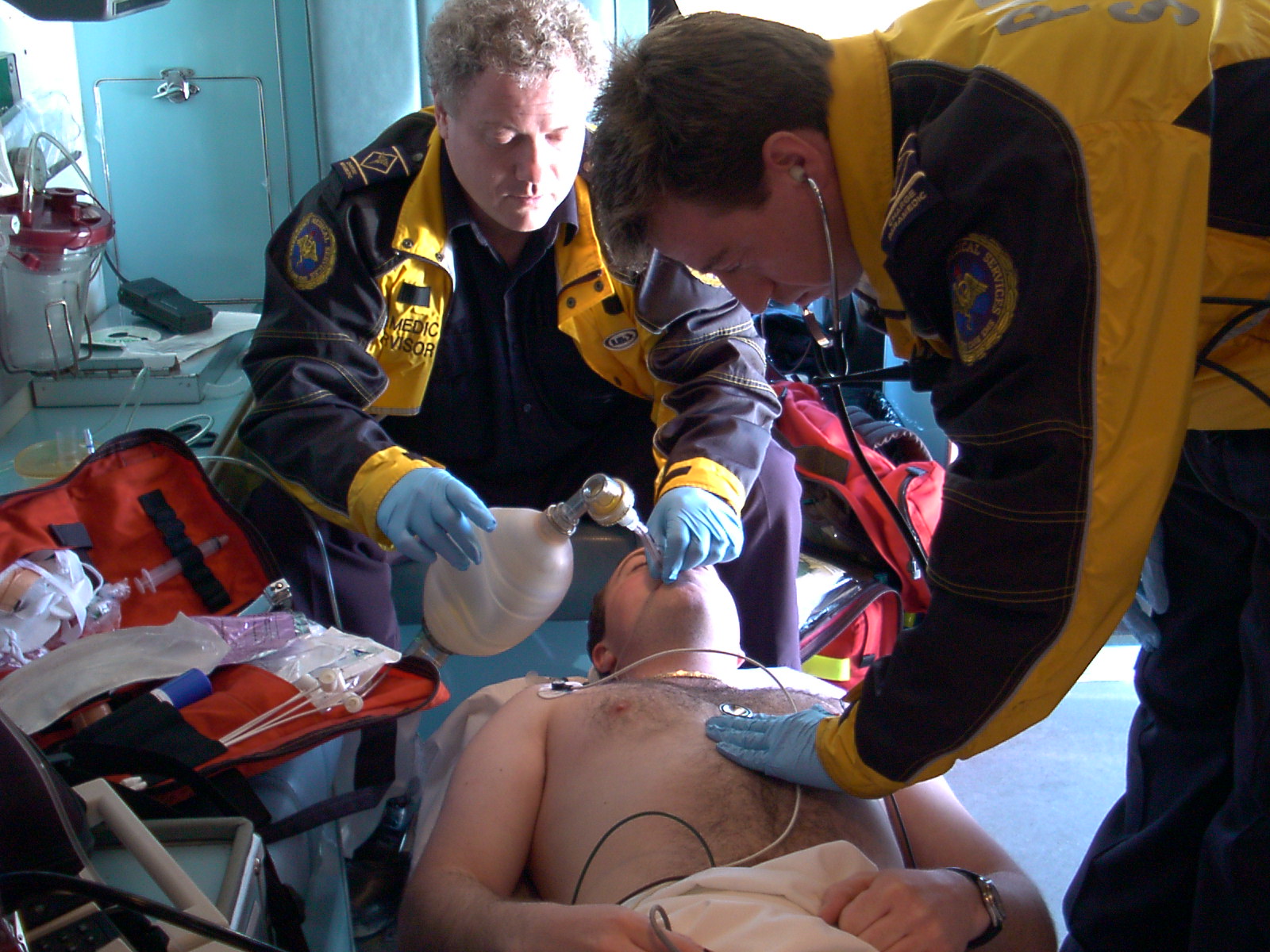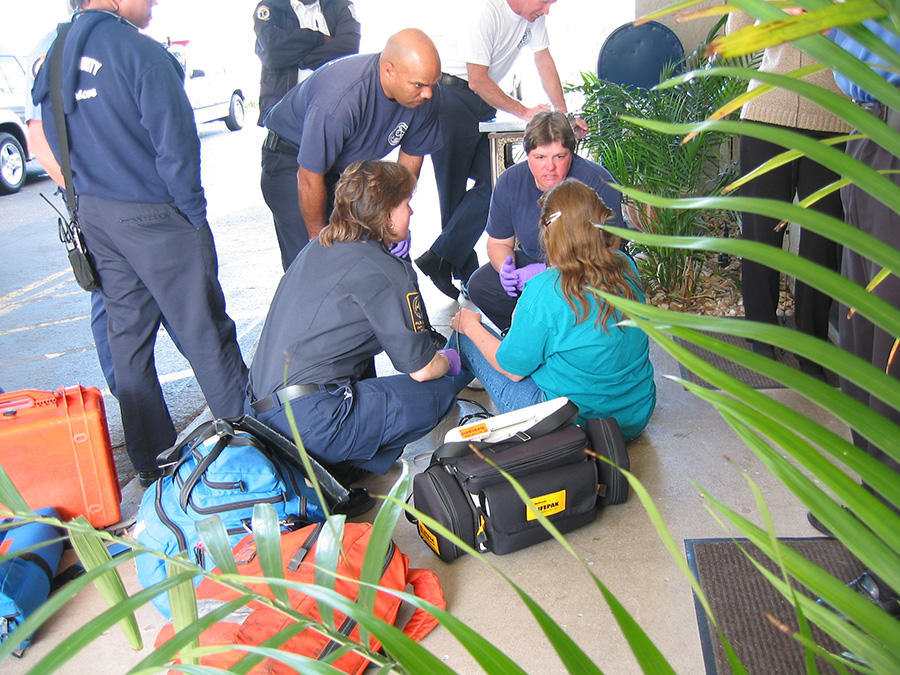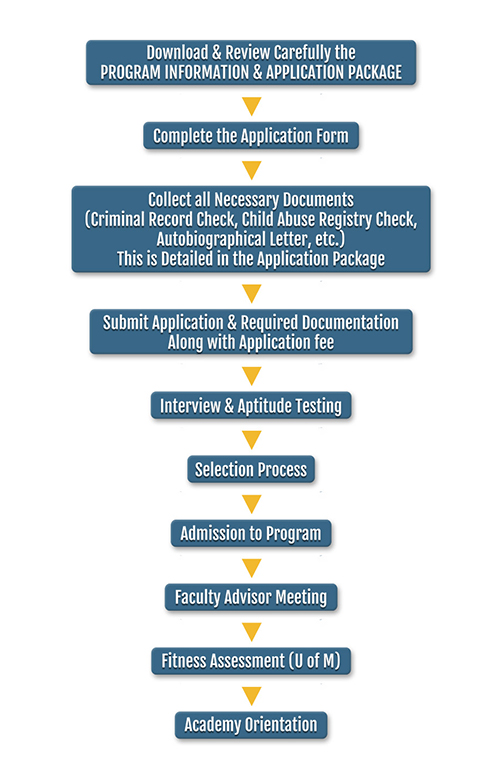Paramedic Academy

An Extraordinary Career Demands Extraordinary Training
With more than 70% of all new Winnipeg EMS hires being Criti Care Paramedic Program graduates, greater than half of Winnipeg EMS Paramedics (WFPS-WEMS) are now Criti Care alumni. Criti Care graduates can be found working in every health region in Manitoba. Criti Care EMS serves a pivotal role in the delivery of Paramedic and Emergency Medical Responder education in Manitoba. As an industry leading elite training facility, we bring together industry knowledge delivered by emergency services professionals working in the field and intense practical training, graduating career prepared individuals most sought after by municipal emergency services in Winnipeg and Manitoba.
As professionals in the field, our staff at Criti Care understand the high level of training paramedics require in order to meet the challenges they face in a fast paced and demanding environment. That is why, when it comes to the quality of training we provide there is no room for compromise. Our comprehensive and world class training gets the very best out of our students and we have over 25 years of history producing some of the very best paramedics in the province to prove it.
We are proud to offer the most experienced and highly trained instructors in Manitoba. All of our instructors are practicing professionals with the Winnipeg Fire Paramedic Service and Shared Health Emergency Response Services. All of our faculty at Criti Care EMS have strong academic backgrounds in science, paramedicine and real life, extensive clinical experience.
The Criti Care Difference:
- Highest employment rate of any Paramedic Program in the Province
- Criti Care graduates account for more Paramedics in Winnipeg EMS system (WEMS) than from all other colleges combined
- Advanced training technology utilizing high-fidelity simulation training
- Outstanding success rates on Canadian Organization of Paramedic Regulators (COPR) National Exam
- Criti Care provides supports after graduation to prepare graduates for the COPR Exam (National Exam)
- Primary Care Paramedic and Emergency Medical Responder Programs Approved by the College of Paramedics of Manitoba (CPMB)
- Accredited by Accreditation Canada-Equal
Educational Institute Standard Score Performance Report (2020)
CANADIAN ORGANIZATION OF PARAMEDIC REGULATORS (COPR)
Criti Care EMS Passing Rate compared to the National Average

Criti Care EMS Standard Score Performance compared to the National Average

Paramedicine Program
Program Goals
The Primary Care Paramedic Program is designed to instruct a student to the level of Primary Care Paramedic, who serves as a vital link in the chain of the health care team. It is recognized that the majority of prehospital emergency medical care in Manitoba will be provided by the Primary Care Paramedic. This includes all skills necessary for the individual to provide emergency medical care at a basic life support level with an ambulance service.
Physical Demands
Aptitudes required for work of this nature are; good physical stamina, endurance, and body condition that would not be adversely affected by frequently having to walk, stand, lift, carry, and balance at times, in excess of 125 pounds. Program candidates will complete physical testing to assess both general physical fitness and specific job-related physical requirements, and be provided with an evaluation and counselling.
The Emergency Medical Responder (EMR)
Criti Care’s Emergency Medical Responder Program is approved by the College of Paramedics of Manitoba (CPMB) and meets the most current EMR program requirements set by the College of Paramedics of Manitoba. EMR’s are part of the foundation upon which Canadian emergency medical systems are built. They are often associated with fire services, medical first response (MFR) services and Emergency Medical Dispatch Centers (911 Call Centers). EMR’s are responsible for initial assessments, the provision of safe and prudent care, and the transport of a patient to the most appropriate health care facility. EMR’s will learn the skills to provide basic life support, airway management, patient assessment including vital signs, management of medical & traumatic emergencies and emergency child delivery & neonatal care.
EMR Application: Go
Primary Care Paramedicine (PCP) Diploma Program
Criti Care’s Primary Care Paramedicine (PCP) Program is accredited by Accreditation Canada, and approved by Manitoba Advanced Education and the College of Paramedics of Manitoba (CPMB), meeting the most current PCP program requirements.
The Primary Care Paramedicine Program prepares you for a challenging and rewarding career in pre-hospital emergency care. Primary Care Paramedics are professional Paramedics associated with urban, suburban, rural, remote, industrial, air ambulance and / or military services. PCPs constitute the largest group of paramedic practitioners in Canada. They are expected to demonstrate excellent decision-making skills, based on sound knowledge and principles. Reserved or delegated medical acts identified in the PCP competency profile include defibrillation and the administration of medications.
In this program, you will combine classroom learning, simulation and scenario based exercises to build the knowledge, practical skills and inter-personal qualities needed for a successful and rewarding career.
In addition to your classroom training, you will also experience field and clinical practicums, working on ambulance and in hospital under expert supervision and mentoring to further develop your skills and abilities.
As a graduate of this program, you are eligible to write the national entry-to-practice examination through the Canadian Organization of Paramedic Regulators (COPR).
Primary Care Paramedic Application: Go

Regulation of Paramedic Practice and Approval of Training Programs
The practice of paramedicine in Canada is regulated by each province or, in the case of federal jurisdictions such as the military, by an appropriate federal authority.
Each regulator is free to determine the scope of practice and practitioner classification system that applies in its jurisdiction. Similarly the regulator may approve training program(s) that are a prerequisite to employment. A number of regulators are aligning their practitioner classifications with PAC’s (Paramedic Association of Canada) NOCP levels.
In Manitoba on graduation from an EMR, PCP or ACP program a graduate may apply for Certificate of Practice (License) through College of Paramedics of Manitoba at the Emergency Medical Responder Level (EMR) Primary Care Paramedic Level (PCP) or Advanced Care Paramedic Level (ACP). In Manitoba to work for an ambulance service you must hold Certificate of Practice from the College of Paramedics of Manitoba (CPMB) at one of the aforementioned CPMB Certificate of Practice levels.
Criti Care EMS Primary Care Paramedic Program
Program at a glance
- Commitment: 16 months (including classroom didactic, simulation and clinical practicum)
- Approved by the College of Paramedics of Manitoba
- Passing grade: 80%
- Upon certification, candidates are eligible to write the National COPR exam.
- Successfully passing the National COPR Exam allows a graduate to apply for a Certificate of Practice from the College of Paramedics of Manitoba.


